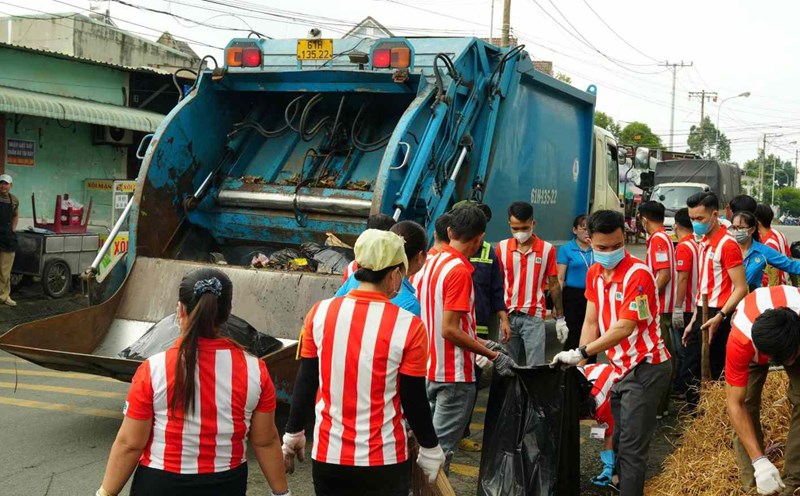And not only Hanoi, on August 13, the Prime Minister issued a telegram to launch a strong nationwide campaign to rectify and improve the quality of environmental sanitation.
The notable point in this Official Dispatch is the synchronous mobilization of the entire political system. The Youth Union organizes a volunteer team; Women's Union launches the movement "Clean House, Beautiful Alley"; Veterans Association sets an example for supervision; Farmers' Association builds a model of "Wasteless Ward", organizes the Trade Union to closely coordinate with local authorities to mobilize workers and laborers to participate in the general cleaning movement in agencies, factories, factories... This is the approach to socialization, turning environmental sanitation into an emulation criterion associated with daily life.
However, to not stop at the peak atmosphere of serving the big holidays, what is more important is to form a long-term, substantial cleaning movement - starting from the self-awareness of each citizen.
In recent years, Hanoi and many provinces and cities have made efforts to collect, treat waste, and improve the urban landscape. However, in reality, it is not difficult to see garbage dumps at the end of the alley, nylon bags thrown hastily on the sidewalk, or canals black with household waste. Those images not only spoil the aesthetics, but also directly affect the health of the community and the image of the country. Many large-scale campaigns have been launched but have been effective in the short term, and after a few weeks, they are not there, because they lack the core factor: Consciousness and sustainable habits of each individual.
Hanoi - the political, economic and cultural center of the country - needs to take the lead. A clean street not only makes people comfortable, but also leaves a beautiful impression in the eyes of international tourists. Many cities in the world have turned waste-free culture into pride.
For the cleaning movement to be truly sustainable, it is necessary to combine three factors: Infrastructure - sanctions - awareness. Infrastructure must be sufficient: Garbage bins, collection points, and transportation vehicles. The referee must be strict: The act of littering must be severely punished. But more importantly, awareness: Comprehension from small things like picking up trash, not discharging wastewater haphazardly, planting a pot of trees in front of the house. Every small action together will create a big change.
Official dispatch 134 opens up an opportunity for the whole society to review environmental behavior habits. This is an opportunity for Hanoi and localities to "restart" a civilized lifestyle, thereby maintaining it as a regular habit. Only when every Hanoian and national citizen considers hygiene as their responsibility and pride can we dream of a truly "bright - green - clean - beautiful" Vietnam today and for the future.











